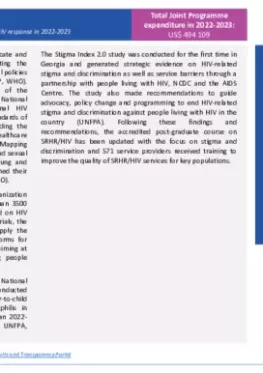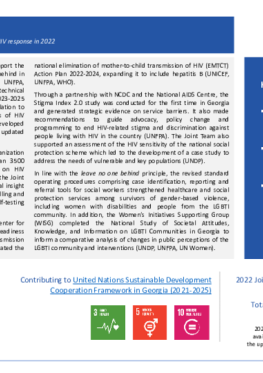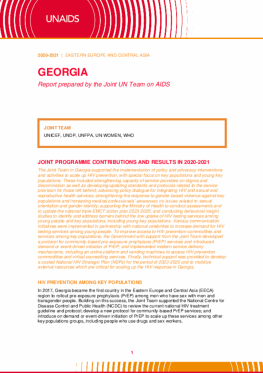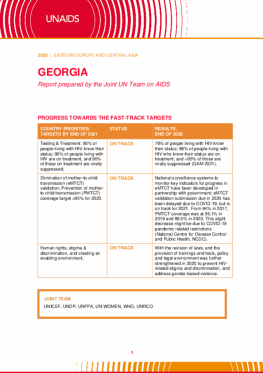|
Georgia
In Georgia, the Joint Programme continued to advocate and support the Government with focus on integrating the commitment to leaving no one behind into the national policies and development framework (UNFPA, UNICEF, UNDP, WHO). Following successful advocacy efforts, the needs of the transgender population has been reflected into the National HIV/AIDS Strategic Plan 2023-2025 and National HIV prevention Standards. Additionally, a protocol on standards of HIV prevention services for key populations, including the transgender population was developed and 60 healthcare providers had orientation on the updated protocols. Mapping and assessment of facility- and community-led HIV and sexual and reproductive health (SRH) programmes for young and adult people from key populations further strengthened their access to integrated HIV and SRH services (UNFPA, WHO).
Through collaboration with the nongovernmental organization Bemoni Public Union, 30 youth workers and more than 3500 adolescents from Tbilisi and rural areas were trained on HIV prevention (UNICEF). As part of randomized control trials, the Joint Programme also supported initiatives that apply the behavioural insight approaches to consolidate platforms for anonymous counselling and youth-friendly services, aiming at boosting uptake of HIV self-testing among young people (UNDP, UNFPA).





